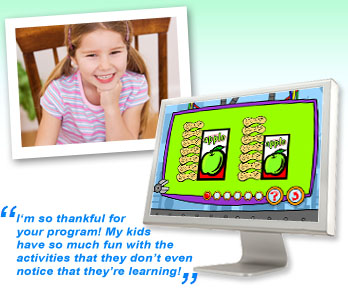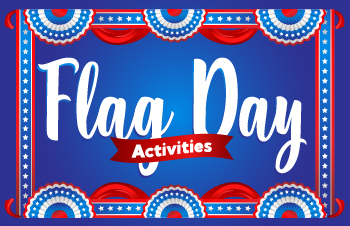Preschool Math Curriculum and Lesson Plans
A preschool math curriculum should be taught using preschool lessons including interactive activities, learning games, printable worksheets, assessments, and reinforcement. Manipulatives are very important for preschool math lessons.
Preschool math curriculum should rely on many learning tools – lessons with activities, worksheets, reinforcement exercises, and assessments. And a preschool math curriculum should cover all the math strands, not just arithmetic. The major math strands are number sense and operations, algebra, geometry and spatial sense, measurement, and data analysis and probability. While these math strands might surprise you, they are all critical lessons for a preschool math curriculum.
Preschool math – also known as pre-kindergarten or pre-k math, provides an opportunity for children younger than kindergarten age to get a basic understanding of counting, shapes, and other very simple math concepts. These very young children learn through stories, songs, rhymes, finger-plays, and other creative methods that make preschool math fun for them. Preschool math includes learning more about geometrical figures and objects, measurement of length, weight, capacity, time, and temperature, use of money, graphs and charts used for data analysis and prediction, and algebraic patterns.
What are the Standards and Curriculum for PreK Math?
Time4Learning’s preschool curriculum teaches a comprehensive preschool math curriculum using fun, preschool math activities and preschool math worksheets to build a solid math foundation. Help your child excel in math, learn more about Time4Learning’s preschool math lessons, curriculum, activities and worksheets.
Preschool Number Sense and Operations Activities
Preschool math includes recognition of numerals from 0 to 10. At this age children are learning to differentiate numerals from other symbols. Preschool children learn to count forward in sequence from 0 to at least 10. They listen to stories highlighting groups of three such as ‘The Three Little Pigs’, or ‘The Three Billy Goats Gruff’, or ‘Goldilocks and the Three Bears’. This leads to understanding higher-number groupings.
Pointing to a corresponding numeral while singing songs or reciting rhymes can help preschool math students with numeral recognition. Other activities that help with numeral recognition are calendar usage, counting independently, and creating groups of objects. Preschool math worksheets are linked to the relevant preschool math activity.
Preschool Measurement Lessons
Preschool math students learn to identify and compare objects by size. They will measure and weigh themselves and be introduced to the concepts of volume, length, and weight. Though they are very young, preschool math students are able to use proper vocabulary to describe quantity, length and weight. They will learn to use the proper expressions such as ‘more’, ‘less’, ‘one more’, ‘bigger’, ‘smaller’, ‘shorter’, ‘taller’, ‘longer’, and ‘heavier’.
During their preschool years, math students recite the days of the week and month with their teacher. They will know the difference between day and night and order two events in a sequence (for example, first we nap, then we go outside to play). They will anticipate the next activity in the daily routine. Preschool math includes sequencing cards or similar activities for understanding the order of events.
*Math standards are defined by each state. Time4Learning bases its use of preschool math standards on the national bodies that recommend curriculum and standards and the interpretations of it by a sampling of states– notably Florida, Texas, and California.












